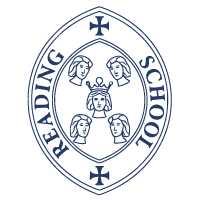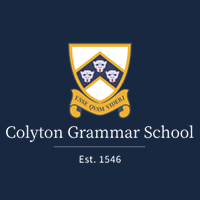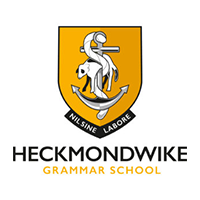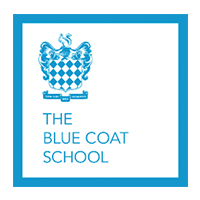Colyton Grammar School
Colyton Grammar School (CGS) mark 11 plus entrance exam in two days with ePC's scanning bureau services and automated marking system.

Background
CGS is a co-educational state grammar school located in the village of Colyford in East Devon, England. Rated “Outstanding" by Ofsted, the school is ranked the ninth best state school in the country by The Sunday Times.
Entry at Year 7 is highly competitive with nearly 500 pupils sitting the entrance test and only 160 places available.
Challenge
In 2022, a previous supplier withdrew from the market leaving CGS looking for a new partner to provide automated marking solutions and mark the 11 plus exam.
As Julia Hitchcock, Admission Secretary at Colyton Grammar School explains:
"With their withdrawal, we needed to look for another supplier, but we also wanted a fairer, more balanced assessment which was better suited to our school and ensured we were able to offer a more impartial evaluation of prospective students’ ability".
CGS reviewed the market and considered other providers. After consideration the school decided to work with Future Stories Community Enterprise (FSCE), a subsidiary of Reading School, which has created an entrance test for grammar schools that is accessible to disadvantaged and visually impaired children.
"We’ve worked with Reading School on other projects in the past and knew about the entrance test developed by FSCE", says Julia. "We felt they understood our school and could create a more accessible test to suit us" .
Solution
FSCE works with several trusted suppliers to deliver the CGS entrance exam. The test covers Maths, English, and Creative Writing; it purposely does not test pupils on their knowledge of the Year 6 curriculum but tests their general understanding and level with the content designed to be fair and accessible for all children.
Working together, FSCE and ePC coordinated a small-scale auto marking pilot scheme with CGS. Julia explains:
"We ran a pilot test with a Year 7 group as Reading School is a state grammar for boys and CGS is co-educational, so we needed to make sure the questions showed no gender bias and were as accessible for girls as they were for boys."
11 plus exam design
Following a successful pilot, FSCE worked with Stothard Education to create new questions for the CGS entrance exam.
Knowing the tests have been developed by experts, with knowledge specifically relating to grammar school testing, gives reassurance and confidence that the process will return the required results.
Julia Hitchcock, Admission Secretary, Colyton Grammar School
The final questions are sent to ePC who design the answer sheet for the Maths and English components. The Creative Writing test uses a generic answer booklet.
Like many schools and trusts, the CGS answer sheet used to be limited to multiple choice questions (MCQ) for automatic marking by OMR readers. The new answer sheet is much more flexible and includes short written responses, something other providers do not currently offer.
Submitting candidate data
The school was asked to submit registration data (candidate ID, name, school, date of birth, test date, location/room etc.) to ePC in an Excel template with the information pre-printed on the answer sheet and encoded into a 2D barcode for immediate recognition and reconciliation.
As Julia explains: "I exported candidate details into the Excel template and uploaded it to the portal. When I did have a couple of queries, ePC answered them immediately in plain and simple language. I needed concise responses quickly and I this is exactly what was provided."
Delivery and collection of 11 plus exam papers
The Maths and English test papers are printed by ePC and securely shipped to CGS alongside attendance registers, instructions for collection, and return labels. Some non-personalised (blank) sheets are included for contingency use in the event a paper is lost, damaged etc.
It was really lovely to have the reassurance that the answer papers would arrive safely. When they arrived, they were all sorted by venue and candidate name and the instructions from ePC on what to do pre- and post-testing were clear and concise. This saved us so much time as we did not have to search through reams of paper to locate a candidate’s answer paper
Julia Hitchcock, Admission Secretary, Colyton Grammar School
Another benefit was children could use a black pen as opposed to a pencil.
At the end of the 11 plus exam, the Maths and English papers are collected and securely transported to ePC for automated marking. The Creative Writing paper is stored securely at the school.
"When I was packing up the answer sheets, I had a brief scan and there were some very neat shadings of the ovals. I did wonder about their use as pupils only had to put a line through the box on the previous test , says Julia [but] I was reassured the software would mark the answer sheets more accurately and automatically recognise what a child intended to do - even if they made an error or changed their mind".
Automated marking
On receipt by ePC, the 11 plus test papers are scanned and marked using handprint (ICR), checkbox (OMR), and barcode recognition technology. Any exceptions are queued for review by ePC’s verification team.
Data export
Once verified, the raw responses are exported and made available to FSCE who work with a statistics company to age-standardise the results. Additionally, ePC provided FSCE with an electronic archive of scanned answer sheets, something that later proved invaluable to CGS.
"We asked FSCE for one or two papers to have a look at so we could feedback to the parents to reassure them that actually what we were telling them is what happened. They were very happy to share the marked papers with us which we really appreciated," says Julia.
Eligible scores
At this stage, students with an eligible standardise score from the Maths and English elements have their Creative Writing paper assessed and their overall performance ranked. The final results are sent to parents/guardians ahead of the closing date for secondary school applications to be made to the local authorities.
Results
The admissions test is an essential part of who we are and what we do. I felt this year’s test was the most straightforward I'd been involved with over the last seven or eight years. It's been a smooth transition from the previous supplier and the entire process felt hassle-free compared to previous years.
Julia Hitchcock, Admission Secretary, Colyton Grammar School
As the CGS entrance exam is sat towards the end of September with a catch-up session two weeks after the initial testing date, CGS had a tight deadline as they needed to inform parents/guardians of their child’s result ahead of the local authorities deadline.
ePC marked the 11 plus exam papers and returned the data within two days. As Caroline Mole, Director of Operations at FSCE explains, the quick turnaround was crucial.
"The fast turnaround provided by ePC was crucial to the overall success of the project and allowed FSCE and Colyton Grammar School to move to the next stage of the marking process without delay".
Caroline concludes: "The admissions process is pretty much non-stop, and the trajectory for every grammar school I've spoken to is that the numbers are increasing year on year, and we’re now talking far larger numbers than we were just 10 years ago. ePC has become a key partner in our admissions testing services to selective Grammar Schools and we expect our relationship to grow and strengthen in the coming years".





